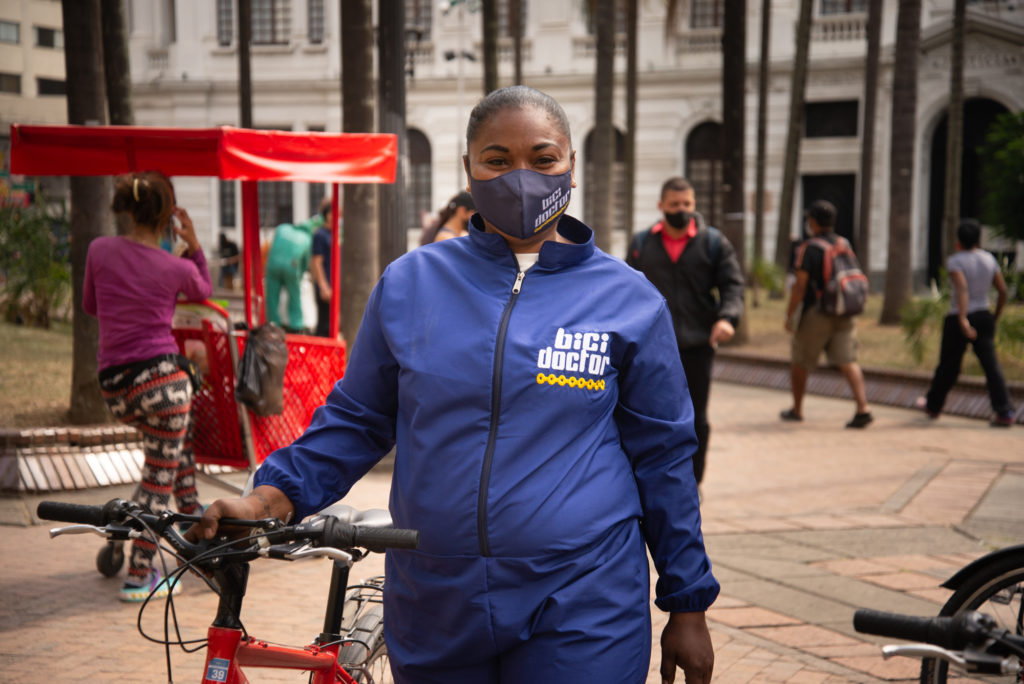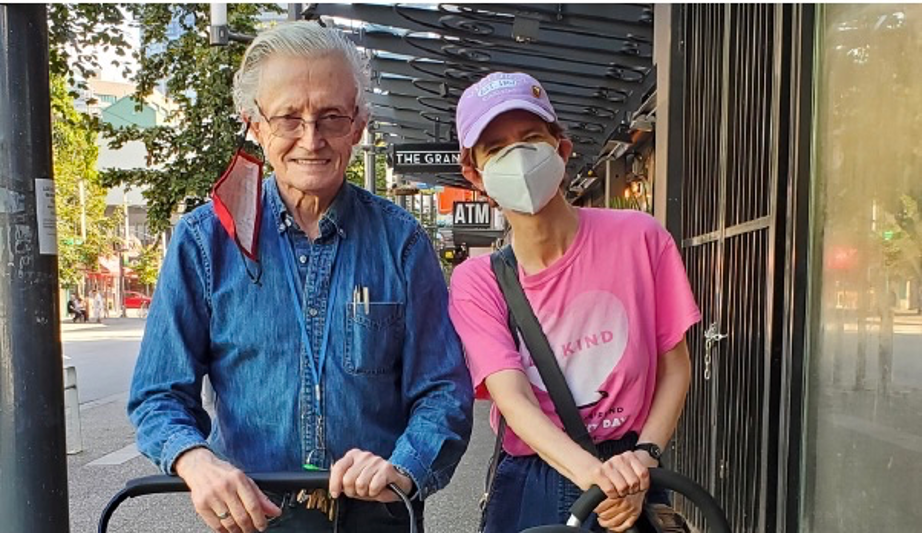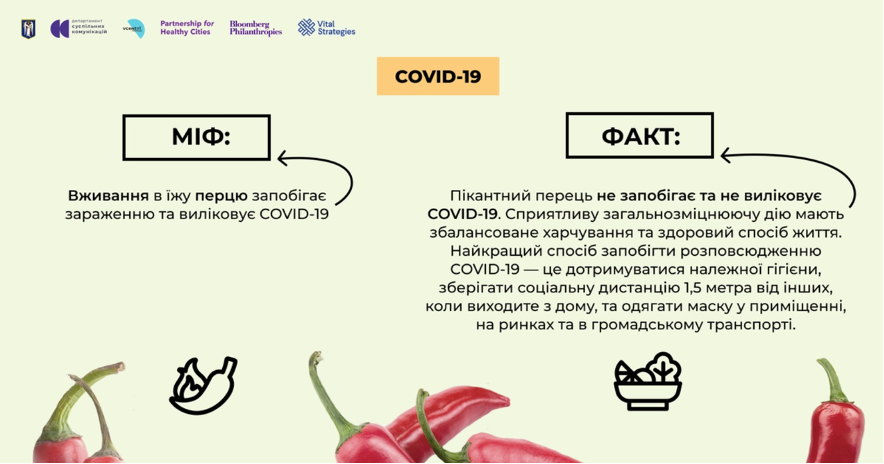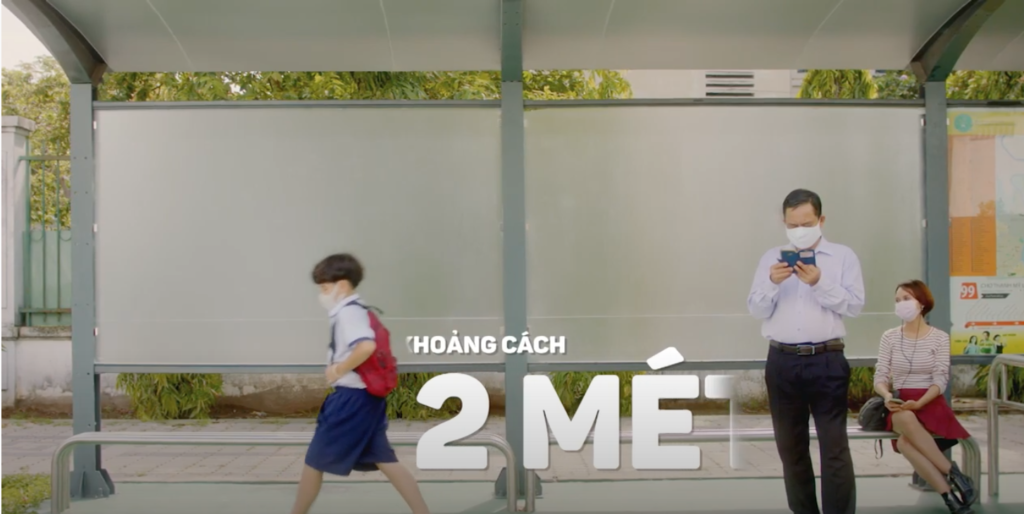For cities around the world, the COVID-19 pandemic has presented daunting challenges, from mounting an adequate public health response to addressing the economic and social effects of urban shutdowns and beyond.
In the face of these challenges we saw resilience and innovation leading to unique local solutions and some remarkable results.
Here are five strategies deployed in 2020 to address the pandemic’s impact. Each is exemplified by urban leaders in the Partnership for Healthy Cities global network and worthy of consideration by other cities; in many cases, peers in other urban centers are already taking up the same approaches.
Cali, Colombia: Strengthening a Culture of Cycling

Martha Isabel Esquivel is one of four Cali “Bike Doctors” repairing bicycles for free as part of a citywide effort to encourage cycling during the pandemic and beyond.
Cycling has always been popular in Cali, a mostly flat city with warm weather year-round, but the pandemic has brought bicyclists into the street like never before. It’s a growing trend worldwide: Cycling allows for better social distancing than other methods of transportation, and COVID-19 lockdowns often mean fewer cars on the street, making for a safer, easier ride.
To meet the surge in local demand, Cali launched a free bike share program in September 2020 with Partnership support, featuring a phone app and a complementary communication campaign. The campaign encouraged cycling as both a strategy to help prevent the spread of COVID-19—through messaging about social distancing and other protective measures—and as an affordable solution for safe and active mobility. The hope is that support for cycling will outlast the pandemic.
The city selected locations for the bike share after studying patterns of pandemic bicycle use and learning which routes feed high-density areas and best supplement mass transportation.
Research also showed that while many residents owned bicycles, they often fell into disuse because repairs were expensive or hard to find. In response, the city added a team of two “Bike Doctors” and officially designated bicycle repairs as an essential service, to allow them to continue operating even under pandemic lockdown measures. In the first two months of the service, the Bike Doctors repaired more than 1,000 bikes—at no charge—prompting the city to double the team to four.
Cities have seen a groundswell in cycling during COVID-19: Latin American Cities Exchange Best Practices
Vancouver, Canada: Addressing the Needs of Isolated Communities

Because community kitchens in Single Room Occupancy (SRO) hotels were suspended during the pandemic, volunteers from the Vancouver Second Mile Society took action by delivering food baskets to community members in need.
Isolation during the COVID-19 pandemic has been particularly challenging for older adults, with physical and mental health consequences that highlight a need to return to in-person activities as soon as feasible. Yet protocols for re-opening, generally designed for larger institutions, have been challenging for small non-profit organizations such as senior centers to implement.
With support from the Partnership, the City of Vancouver has been working with local organization Vantage Point to support small, senior-serving organizations in navigating re-opening regulations, guidelines and safety issues. The project identified two pilot organizations: Gordon Neighborhood House, located in an area with a high percentage of seniors, and Vancouver Second Mile Society, located in one of the city’s poorest neighborhoods and serving a population of mainly Mandarin and Cantonese speakers.
The programs offered by the two organizations are key, especially those involving health prevention and promotion, food security and community connection. But without proper re-opening guidance, it’s less risky to simply keep these programs closed. The senior centers are working to meet governmental health and safety updates and aim to launch structured programming in phases to ensure safety for all—ensuring that Vancouver’s elderly community remains connected even in the midst of a new wave of COVID-19.
Elsewhere within the global Partnership for Healthy Cities network: Mayors Work To Address COVID-19’s Inequitable Impact
Kyiv, Ukraine: Fighting Harmful Myths and Misinformation

This social media graphic highlights the “MYTH” that spicy peppers can cure COVID-19 and the “FACT” that the best way to prevent the spread of COVID-19 is to practice good hand hygiene, stay at least 1.5 meters from others and wear a mask in public.
In a city where a significant part of the population believes in home remedies, such as eating spicy peppers or garlic to cure COVID-19, myth-busting was identified early on as an important focus for Kyiv’s Partnership-supported communication campaign.
On social media, the city highlighted false information by juxtaposing a common “MYTH” about the pandemic against a single “FACT.” These were complemented with posters widely distributed across the city advising residents on public health recommendations such as social distancing, hand washing and mask wearing; radio broadcasts urged residents to follow these measures and explained how to detect symptoms and get help.
During the October 2020 mayoral elections, 60,000 leaflets urging adherence to COVID-19 safety measures were distributed at polling stations, and two radio stations reached 906,090 listeners with the same messages.
The power of communication in combatting the pandemic: COVID-Free Tomorrow campaign catalyzes action in Ukraine
Abidjan, Cote d’Ivoire: Going Local with Trusted Community Leaders

At information sessions in 125 separate neighborhoods, posters (right) were distributed encouraging the use of masks, and trusted local leaders were equipped with key COVID-19 information to share with their communities.
Abidjan’s COVID-19 response has also been hampered by widespread misinformation, including beliefs that hot weather or drinking lemon might prevent its spread, or doubts about the origins of the novel coronavirus. The capital city’s efforts to target the COVID-19 “infodemic” have been inspired by past success running public health campaigns that rely on trusted local community leaders to get the word out.
With support from the Partnership, public health officials visited 125 neighborhoods to deliver colorful posters highlighting the importance of wearing masks and to speak about other basic COVID-19 safety measures too, such as handwashing and physical distancing.
In order to reach the most residents, local committees were trained to disseminate the materials and advocate for the measures directly with their neighbors, with messages echoed in radio and television spots.
More from the Partnership for Healthy Cities: Winning Public Trust in the Age of COVID-19
Ho Chi Minh City, Vietnam: Demonstrating the Safety of Mass Transportation

A child paces out two meters at a Ho Chi Minh City bus stop, in a video demonstrating COVID-19 public transportation safety measures.
Ho Chi Minh City has endured a relatively low number of COVID-19 cases, but with a population of 9 million, the city remains on high alert and eager to reassure commuters, schoolchildren and shoppers the safety of public transportation.
With support from the Partnership for Healthy Cities, the city launched a video campaign in July 2020 recommending—and demonstrating—physical distancing and other measures for riding on and transferring between buses and trains. A mother and son appear repeatedly, in one video demonstrating good handwashing technique, in another how to wear a mask or sneeze safely while riding a bus.
The videos remain in circulation, reaching an estimate 65,000 people every day on screens in public spaces such as government buildings and waiting rooms at bus stations and other transportation hubs, and another 700,000 people through television.
Learn more about the Partnership for Healthy Cities COVID-19 Response: https://cities4health.org/
Follow us on Twitter: @VitalStrat
About the Partnership for Healthy Cities:
The Partnership for Healthy Cities is a prestigious global network of cities committed to saving lives by preventing noncommunicable diseases (NCDs) and injuries. Supported by Bloomberg Philanthropies in partnership with WHO, as well as Vital Strategies, this initiative enables cities around the world to deliver a high-impact policy or programmatic intervention to reduce NCDs and injuries in their communities. For more information, visit: https://partnershipforhealthycities.bloomberg.org/
The Partnership for Healthy Cities COVID-19 Response is part of the $40 million Bloomberg Philanthropies COVID-19 Global Response Initiative. By collaborating with the WHO and Resolve to Save Lives, an initiative of Vital Strategies, the Partnership for Healthy Cities COVID-19 Response is working hand-in-hand with the world’s leading experts on epidemic prevention.